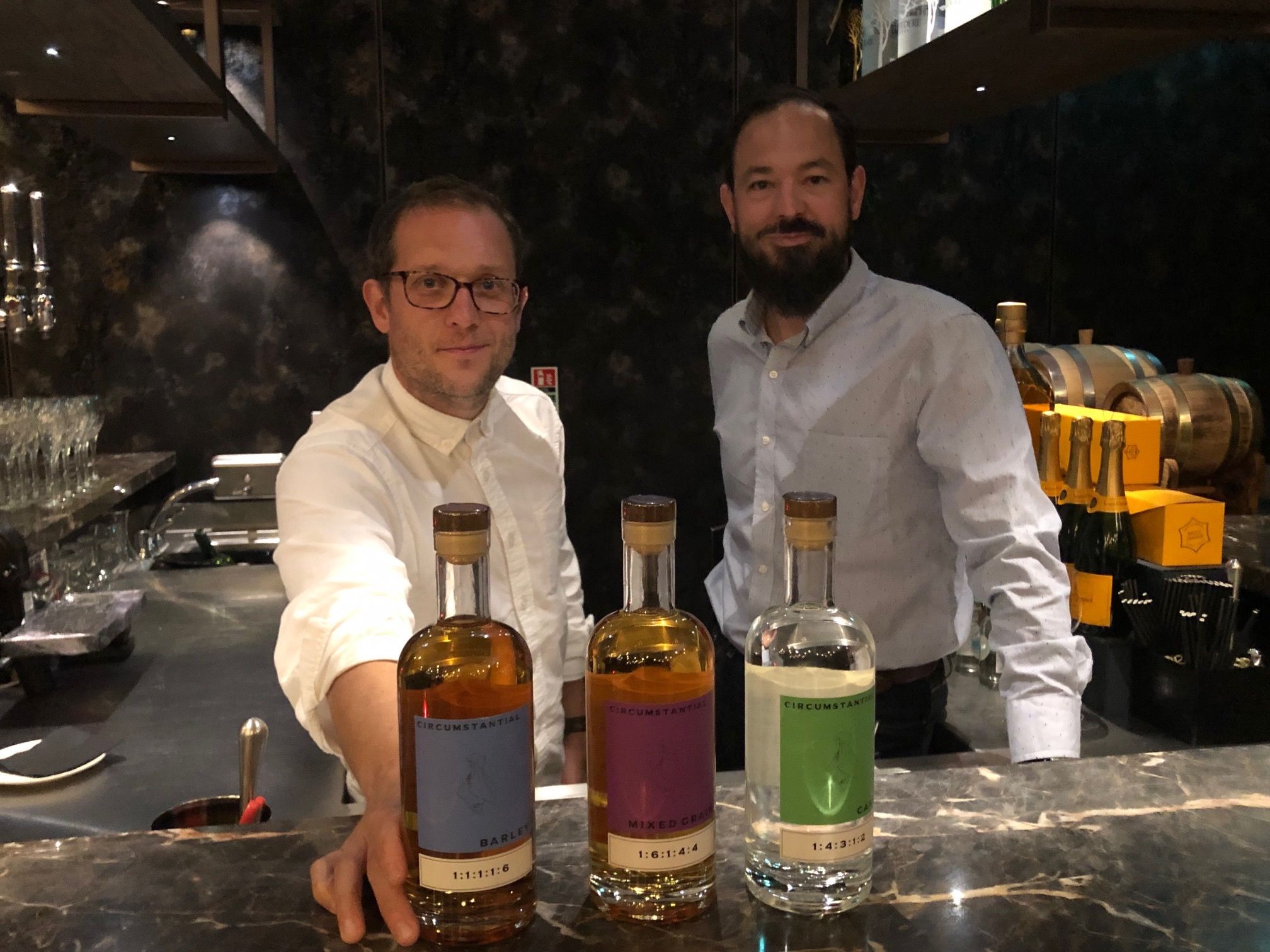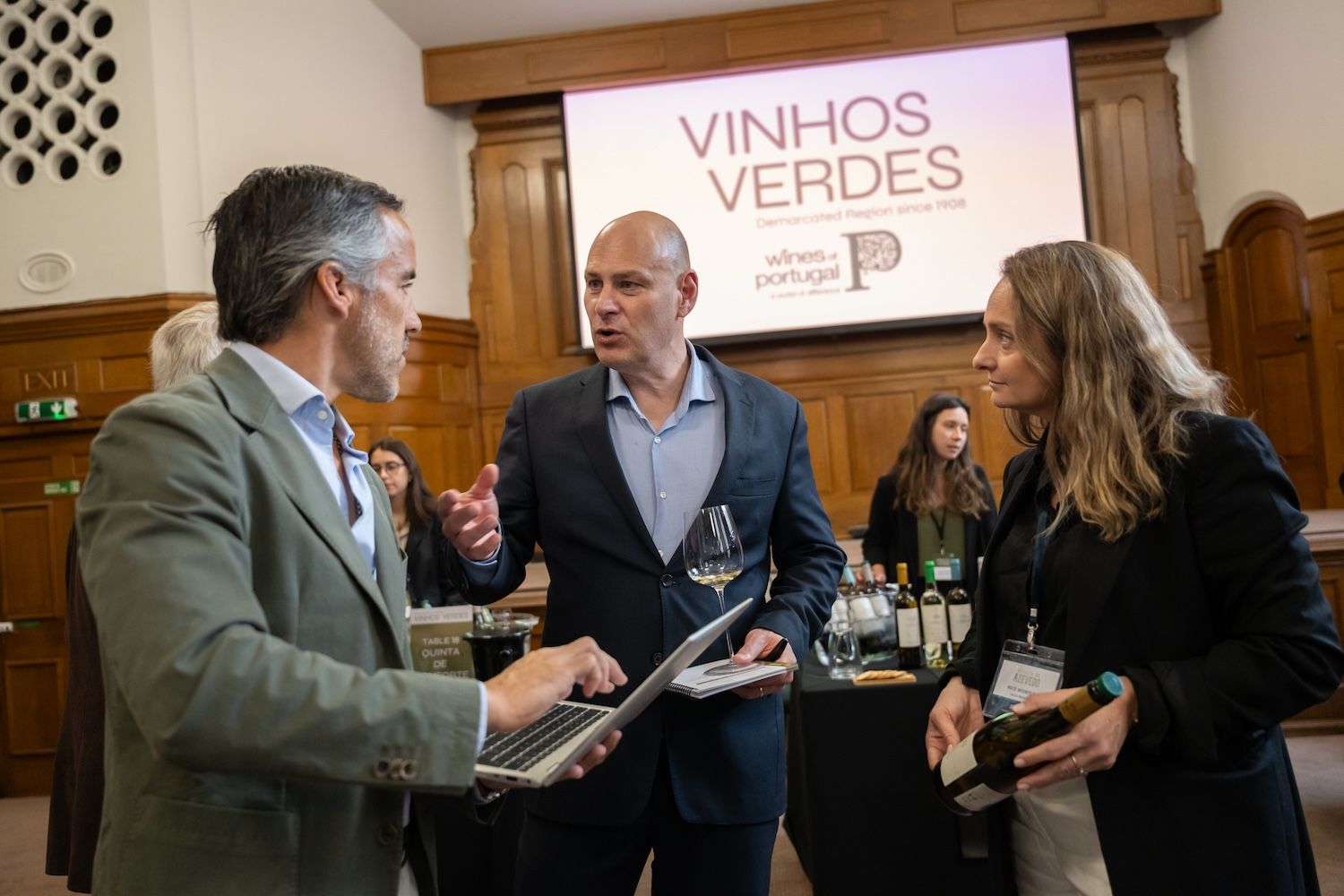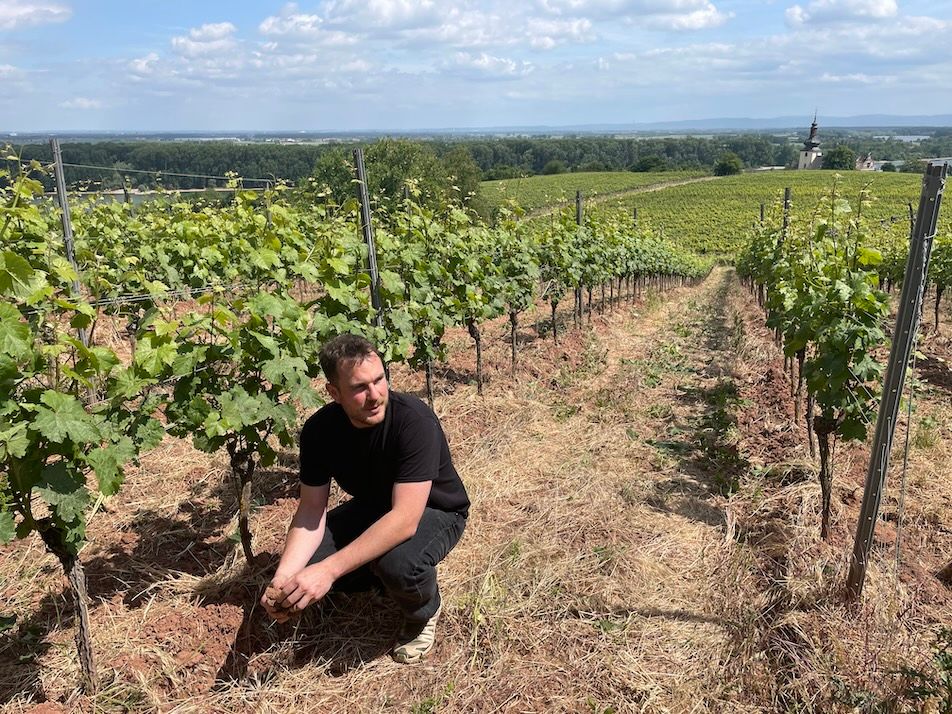Grains and cane are what it is all about at the breakthrough Circumstance Distillery which hopes to celebrate ‘New World’ distilling from its base in Bristol.
By the normal rule of thumb Liam Hirt and Danny Walker would not have gone into business together. In fact it is a surprise they ever met at all, other than the fact that Hirt might have gone into one of Walker’s bars for a drink. For by profession Hirt is a trained and practising cardiologist and Walker has spent most of his career working his way up through the bar scene.
They first came together when they were both involved in running a bar together in their home town of Bristol, The Rummer, in the mid 2000s, but parted ways in 2007. But like kindred spirits (sorry) they would soon run into each other again, at a wedding, and they decided to combine their talents and a shared love of the world of distilling.
Hirt had for some time been experimenting in the basement of his house with mini stills producing batches of gin. What started out as a hobby, with Hirt making around 30 bottles per run from a 30 litre copper pot, would soon to turn into an actual enterprising business when Walker also got involved.
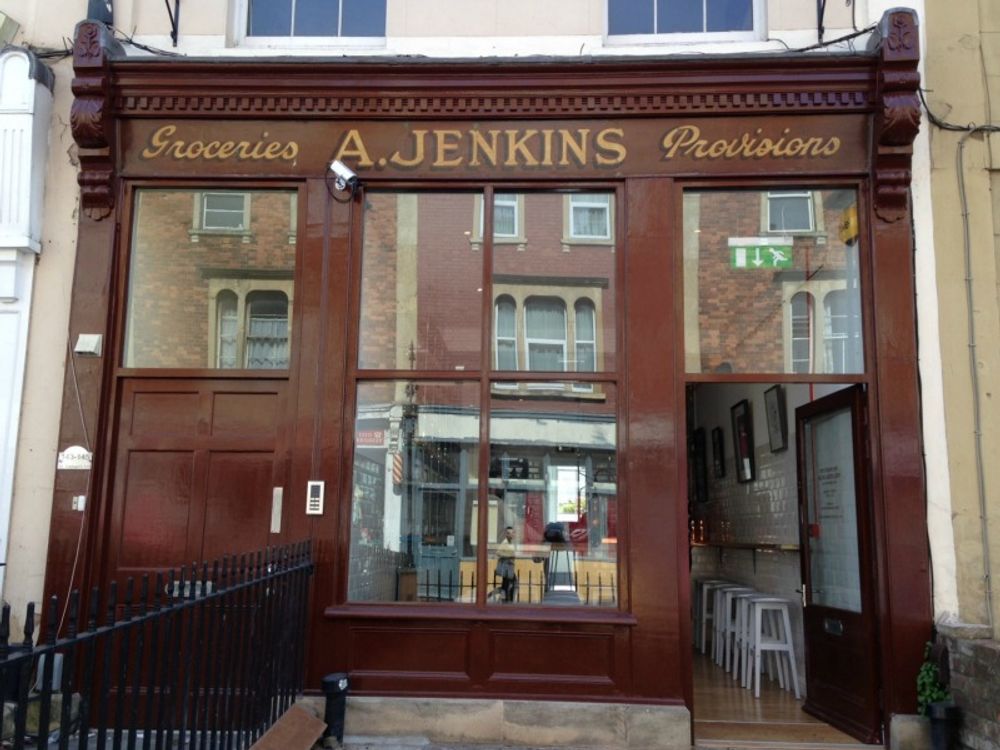
Open All Hours: no not a corner shop but actually a micro distillery in Bristol – the Psychopomp Distillery
Side business
But for both it was very much a side business to their day jobs of mending people’s hearts and running bars in Bristol. They did not even need to go out and do sales calls, says, Walker, word was out that there was micro craft gin to be had and the bottles sold themselves.
It was during these early experimental days that the duo really started to explore different ingredients and flavours, looking to challenge people with new ideas like fresh grapefruit gin. “We took a lot of influence from Death’s Door in the US,” said Hirt.
“We started to make seasonal gins, and introduce limited edition styles every three months, which seemed to work well,” added Walker. It also allowed their imaginations to run wild as they knew any risks they took would only be small and if no-one liked their orange zest, beetroot autumn gin then they could always give them to their families. Their recent summer gin was a combination of heather flowers, pomegranate and fig leaf. With all 750 bottles sold.
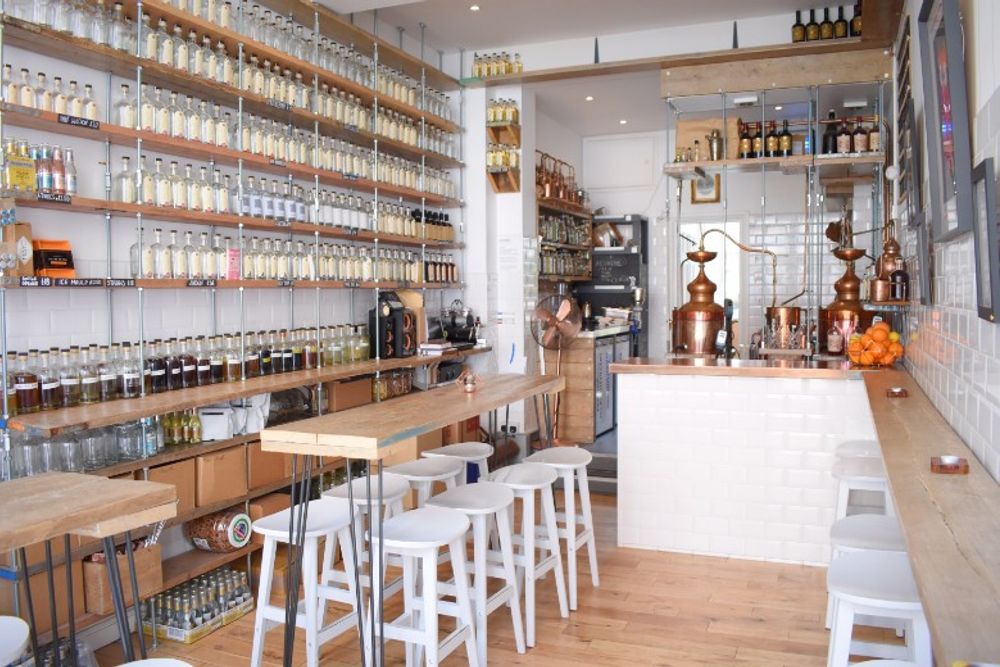
The limited edition seasonal gins have proved very popular at Psychopomp Distillery
By 2013 they had grown too big for the basement and needed to break out into daylight. What followed was their first craft distilling business, the Psychopomp Distillery. Which was actually two stills – known affectionately as Left Still and Right Still – set up in an old local grocery store. It quickly built up quite a following in the area, and they were soon struggling to keep up with demand.
Pushing the boundaries
But producing gin is one thing, what Hirt and Walker really wanted to do was to push the boundaries a little of distilling itself and try and create their own niche. Rather than stick to the tried and tested. Which is what the new standalone Circumstance Distillery, opened in a new 3000 square feet facility in 2018, is all about.
Here the whole modus operandi is about ‘New World’ distilling where you are not constrained by old traditions, but free to use your own ideas, techniques and ingredients. And then some.
To help them in this cause, Hirt and Walker brought in a full time distiller, Mark Scott in 2016, who had been working at the Little Red Door in Paris.
At Circumstance the emphasis is all about creating grain and cane, or rye and wheat spirits working with a wide variety of raw materials including malted barley, oats, corn, rye, molasses, and triticale (not me either).
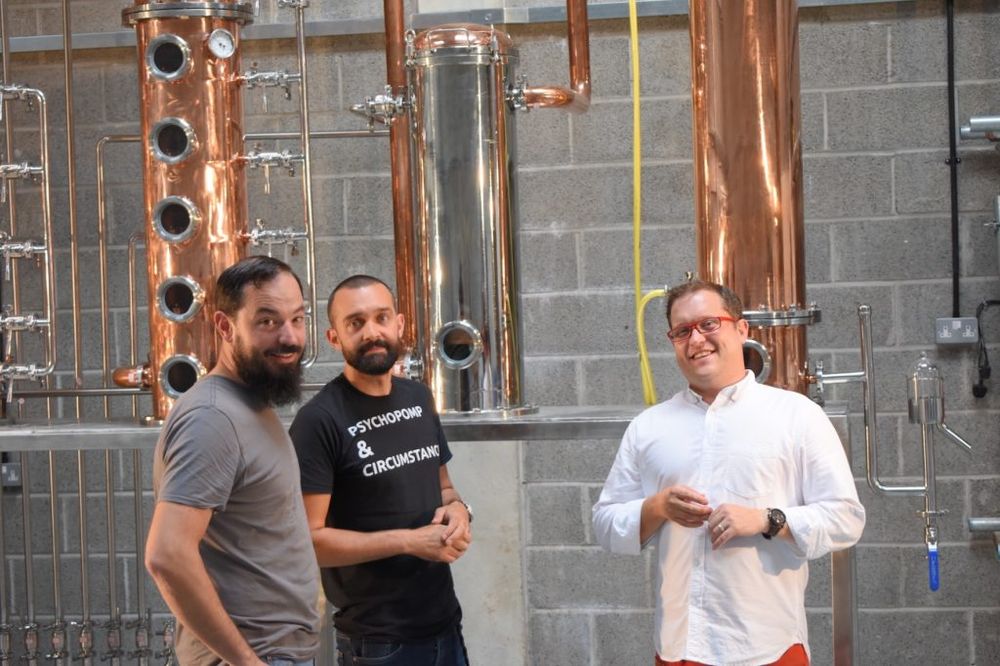
Liam, Mark and Danny with their ‘Big Bastard’ still….
“We are trying to embrace New World spirts,” says Hirt. “We are not trying to make Scotch in England. We are not following the way you make Scotch whisky. If anything we are more influenced by craft brewing.”
What it has meant is upgrading its distilling equipment and the installation of what they call The Big Bastard Still, which looks like a very large, elegant and complicated saxophone. In technical terms it is actually 1900 litre stainless pot still which can be connected to two column stills, a four plate and a 12 plate. Designed so that they can make double-distilled pot stills. “It all arrived in bits and we had to put it together ourselves without any instructions,” says Hirt.
They even had to wrench it to a car so that they can lift it up to the required height. “We built it so at least we know how it works,” adds Hirt.
Fermenting and crafting
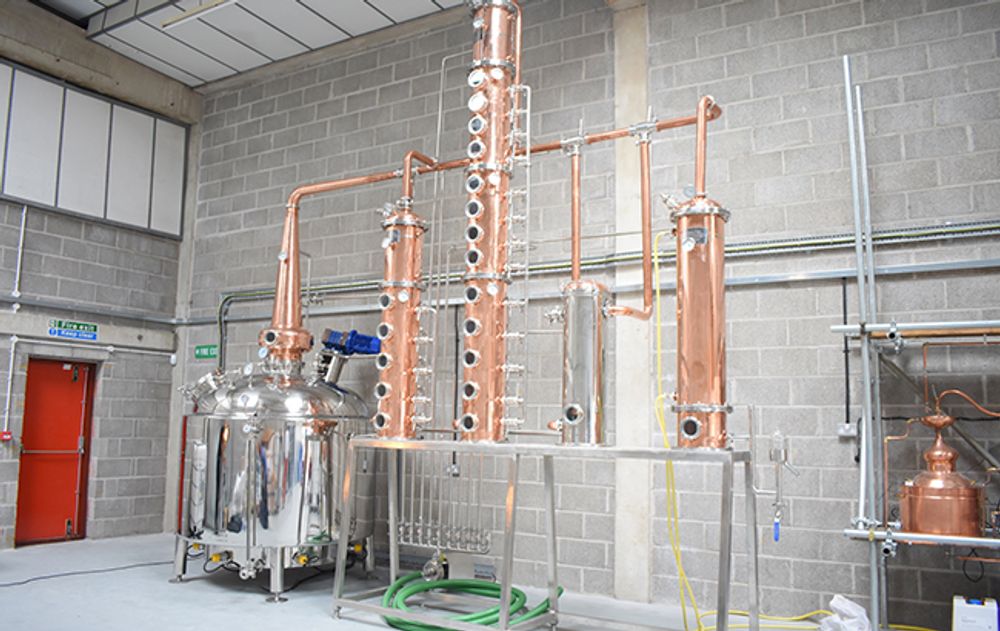
The new larger Circumstance Distillery that is focused on grain and cane spirits
With the new Circumstance Distillery it has been the opportunity to also learn the craft of fermenting and maturing to help create the flavours they want in their grain and cane spirits.
To ferment their barley spirits, for example, they use a distiller’s yeast combined with a saison beer yeast. Whereas it uses a mead yeast for its oats, corn and rye. Rather than use enzymes mash bills are used that contain some malted barley to help the fermentation process. All of which is then fermented at a low temperature to bring out the flavours.
Maturation is about getting as much flavour into the spirit as quickly as possible so they will often use wooden spindles, made from English rather than American oak. “You can get a bit more spice from English oak,” says Walker. “The spindles allow us to keep the fruitiness in the spirit with a touch of wood.”
As you have to wait three years to release a whisky the team have been getting around those rules by releasing spirits early under Circumstantial Barley, after only six months, and Circumstantial Mixed Grain which is a combination of wheat, malted barley, and rye.
These are very much sipping spirits. It would feel just wrong to laden with too many mixers and other flavours. Walker says the Barley is perfect just over ice or as a high ball with soda.
They are also looking to release spirits down the line that have used chocolate malts, brown malts and smoked barely amongst others.
“We are constantly creating and want to explore and find the next flavour profile,” adds Walker. “We are looking at rice distillation as well and local roasters and coffee.”
Private business
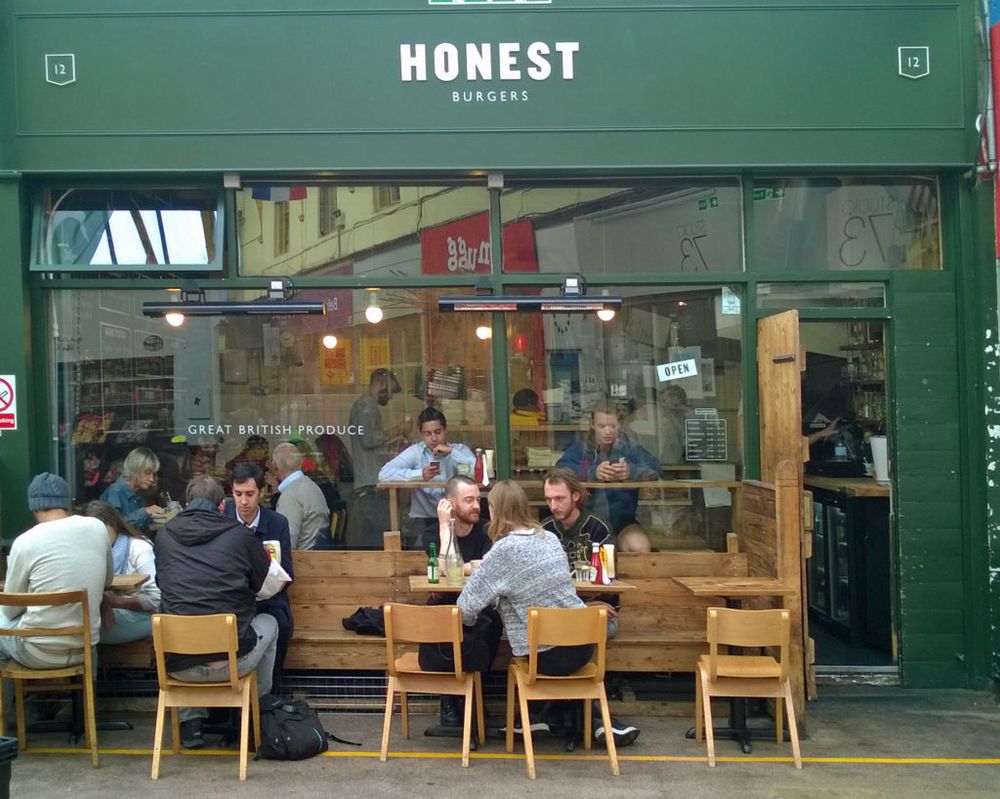
Honest Burgers are one of a number of restaurant chains that are now working with Circumstance Distillery to make bespoke craft spirits
The two distilleries (Psychopomp and Circumstance) are also doing a lot of bespoke, private label work for restaurant groups and private clients as well as creating special edition gins for weddings, birthdays and special events. Its biggest national account is currently with Honest Burgers where it has been able to use its special recipe for pickles in a cucumber, dill seed and grapefruit variety gin.
“It has to be a project we are interested in doing,” says Walker. Or as Hirt says “we always say yes” and then work to the principles of distilling they are happy with. “We can always learn something.”
“All the gins we produce are made in our 30 pot stills and done by hand in just the same we started out,” says Hirt, who estimates they must have at least 100 bespoke gin recipes to choose from.
Between the two distilleries they are able to produce 600 bottles of gin a week (300 each) with plans to take that to 600 and 900 respectively as they grow. The whisky side then offers more opportunities as it has far more still capacity. “The issue is more about barrel storage,” say Hirt.
All about the numbers
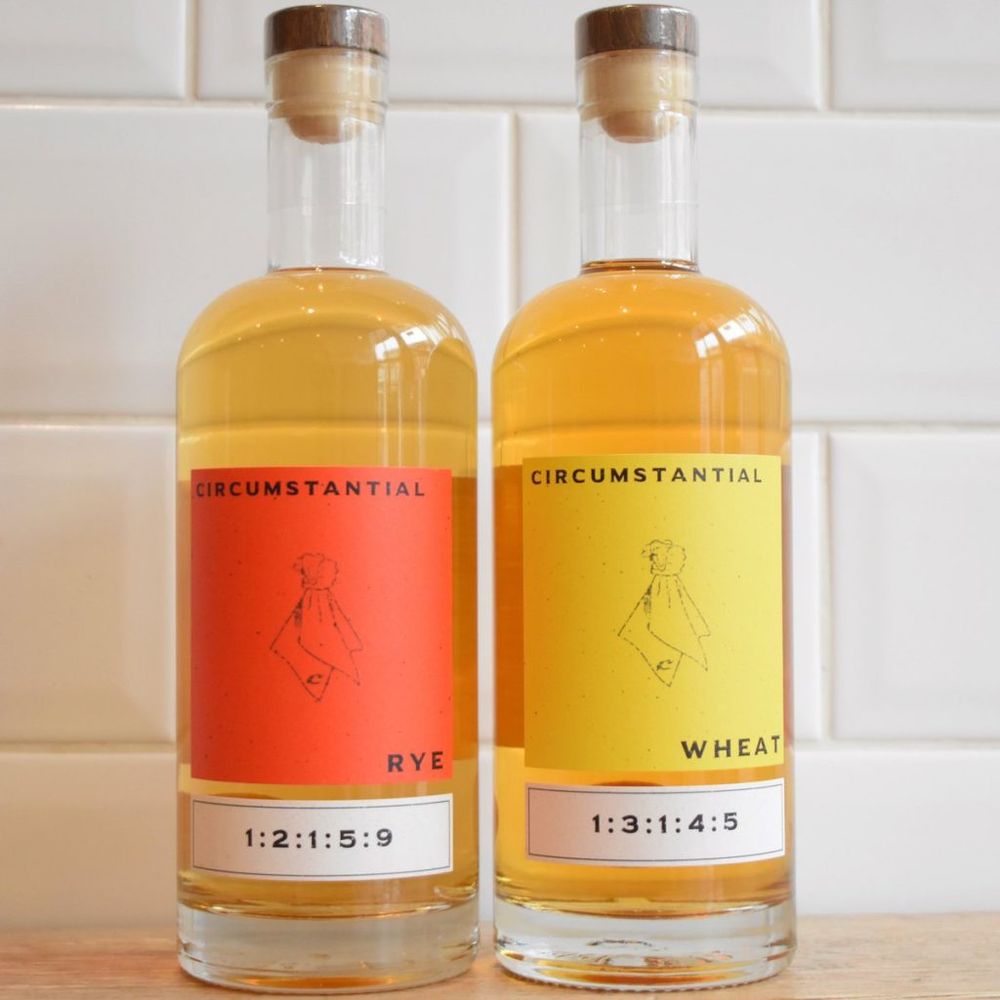
The duo’s more maverick approach is carried through to the labelling and naming of the spirits.
Each brand comes with its unique set of numbers – so for its Cane spirt they are 1:4:3:1:2. Each number can be used to: first identify the number of batch it came from; second how it was fermented; third what distilling process was used; fourth how long it was matured; and lastly its age.
Despite its initial success, Hirt is keen to stress that this is still just a hobby that has got a little out of hand. It’s why it has been able to build and maintain a true community spirit behind the distillery and what they are doing.
You can even buy their brands ands spirits with Circumstance’s very own cryptocurrency. Tokens were sold at the beginning of September 2018 with the first 1,000 costing £30, with subsequent token releases costing £35 and £40.
“To be able to go to the next stage we have alway had to have people buying what we were making. That is what has enabled us to do what we have done so far. We have built that community who have invested in what we are doing. So we thought how can we reward people who have come all this way with us,” explains Hirt.
Hence their own cryptocurrency which most of its customers are hanging onto as it allows you to redeem them against any bottle in the future. So the more they succeed the bigger the reward might be. “It’s also been a way for us to raise money at the same time,” he admits.
A win, win for them and their customers.
Brave new world
The next step in their development is to move into artificial intelligence with a link up with a team of computer scientists, at Tiny Giant to create what it claims is the world’s first AI gin. It’s made by ‘Ginette’ a neural network who is the ‘brains’ behind ‘Monker’s Garkel’. All in still very much under their sleeves before its imminent launch in November.
But Hirt says: “AI and machine learning are exciting new tools. We do a lot of contract distilling and wanted to know if these tools could make a meaningful contribution to new product development. At present they are not a substitute for the skill of the distiller, but we have clearly shown that they can make a valuable contribution to all aspects of the development process, from the recipe to the naming and labelling. We trained Ginette well, and with a little human help and guidance, the product is interesting, attractive and, most importantly, delicious.”
Welcome to the New World of distilling.
